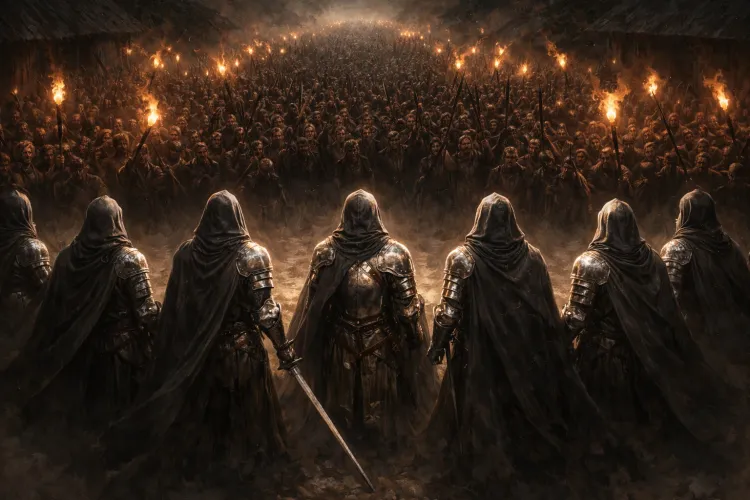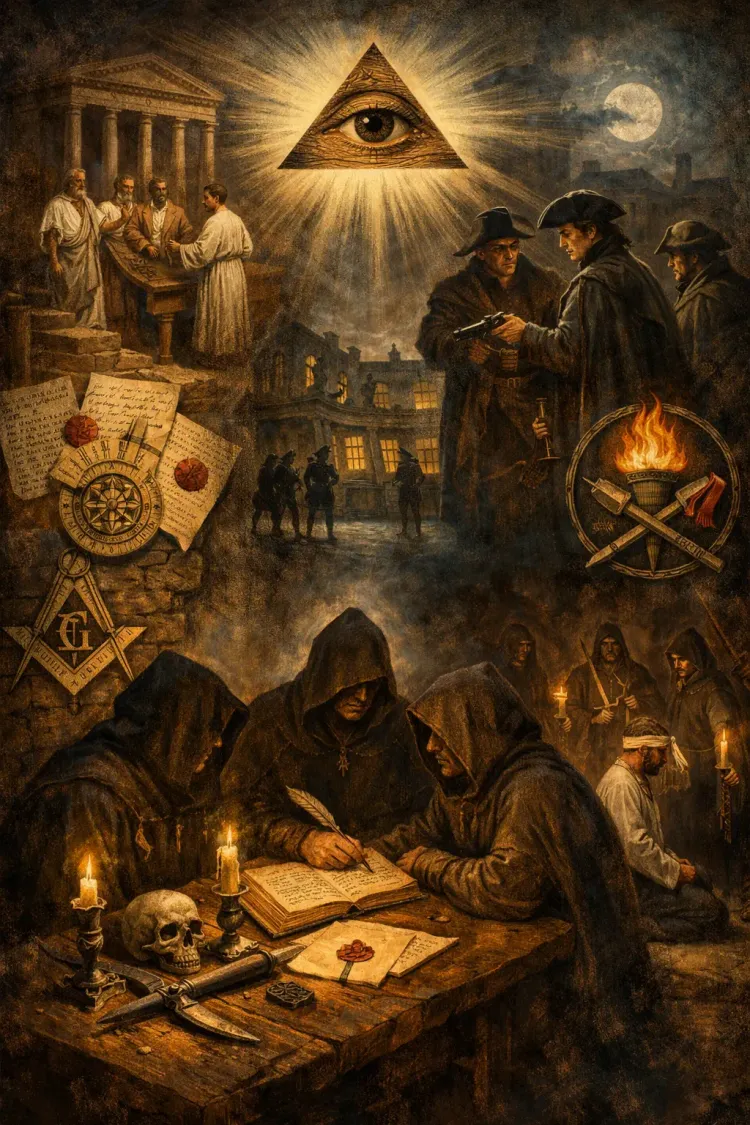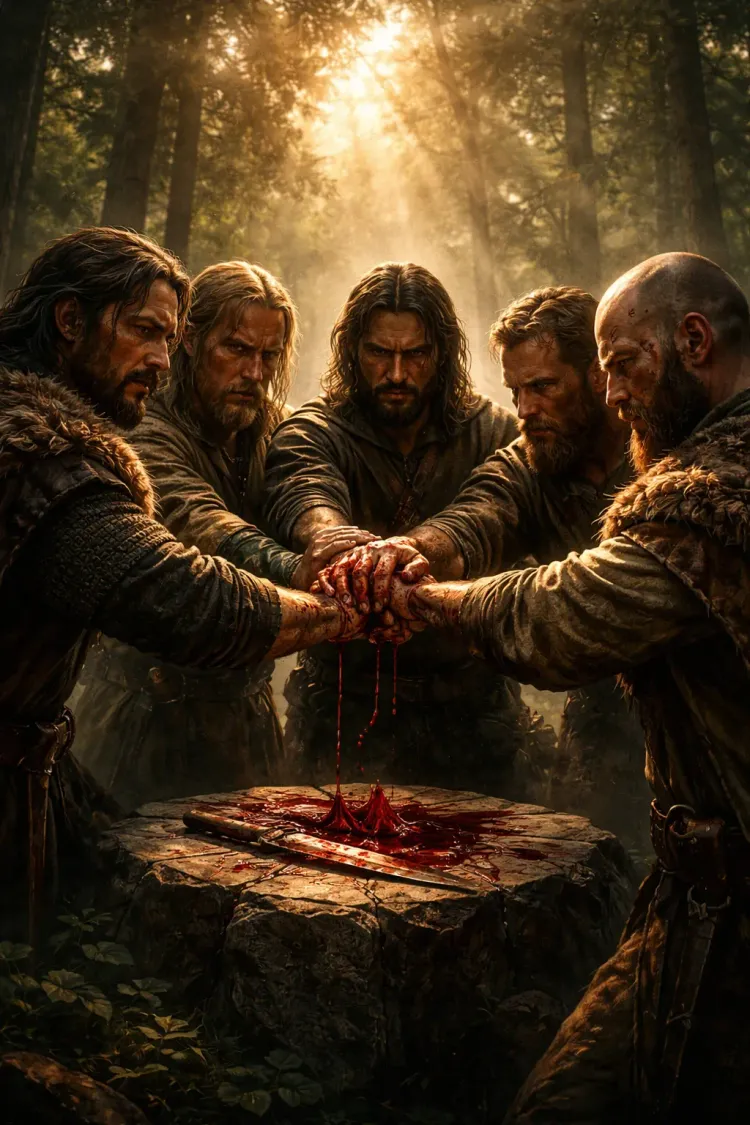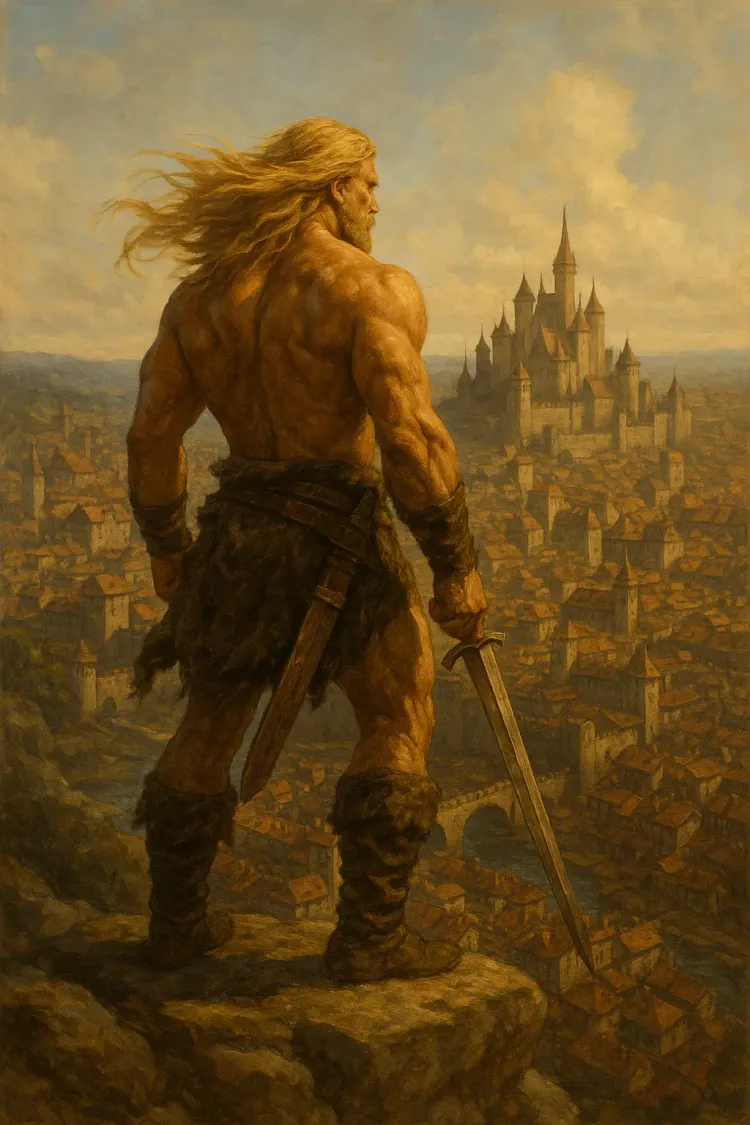The False Idol of Net Worth
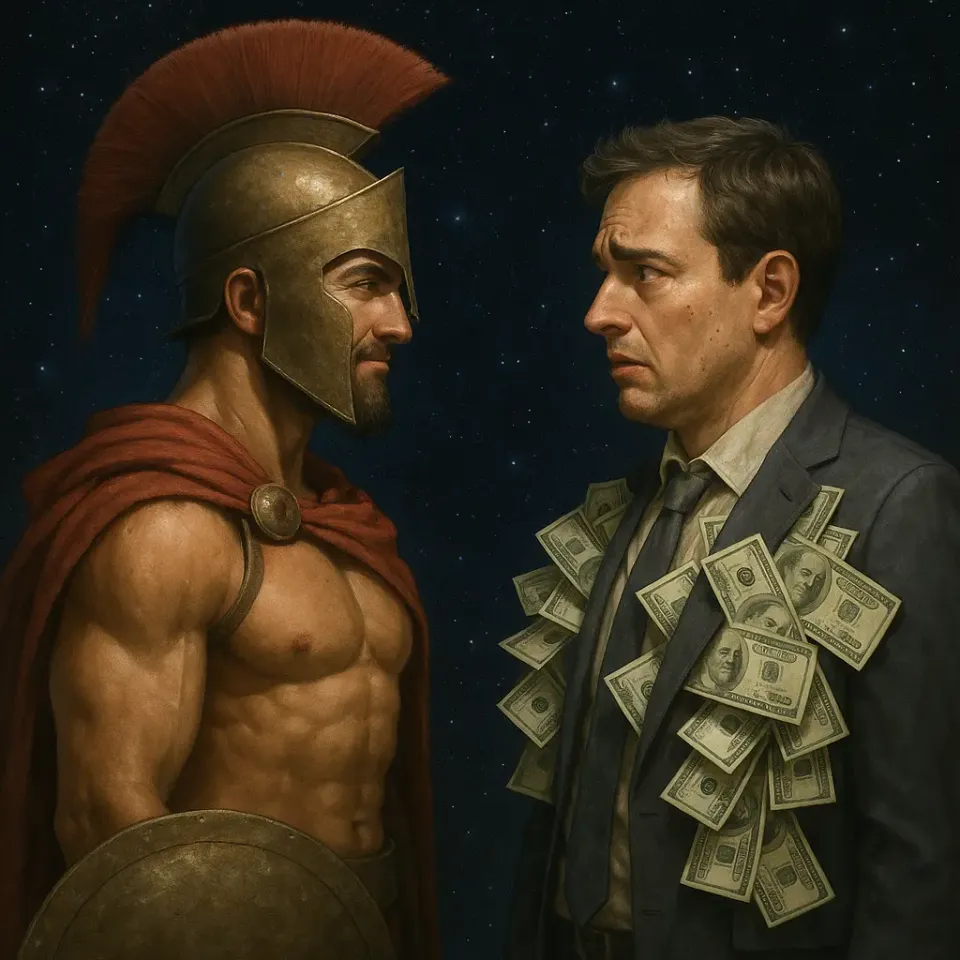
By Colonial
Glory vs. Comfort: The Heroic Code of the West
Modern Western culture is enthralled by a false idol: net worth. The dollar-denominated value of a man's total assets has become a shorthand for his supposed greatness. This fixation on wealth for its own sake is a grotesque departure from the values that once defined Western heroism. In contrast, consider the Homeric age of ancient Greece. In that era, treasure was not an end in itself but a trophy – a hard-won symbol of valor and strength. A Homeric hero sought glory, not comfort. He measured his worth in deeds and honors, not in accumulated gold. Achilles didn’t fight at Troy to pad his retirement fund; he fought for undying fame, even at the cost of his life.
That heroic principle, glory over gold and honor over ease, resonated throughout Western history. The ethos of seeking renown through extraordinary effort and sacrifice persisted for centuries in Europe and its far-flung diaspora. Medieval knights pursued holy quests and defended their realms for honor and faith, often at ruinous expense to themselves. Age of Discovery explorers ventured across deadly oceans for glory of discovery (and yes, sometimes fortune, but it was the conquest and adventure that drove the great ones). On this day, we honor Christopher Columbus because he embodied this same spirit of audacious pursuit; sailing west into the unknown with conviction that bordered on madness. He staked his life, his reputation, and his eternal soul on a vision of reaching new worlds. His voyage was not driven by greed alone but by a faith in destiny and the hunger for glory that animated all great Western explorers. This spirit followed the European diaspora across the Atlantic. One need only recall the Founding Fathers of the United States, who literally pledged their “lives, fortunes, and sacred honor” to a cause greater than themselves. Many of these men attained to wealth early in life but died destitute, having spent all their treasure to achieve greatness. Their pledge was no mere slogan: by signing the Declaration of Independence, those men risked treason and death, and many indeed lost everything. Some died in battle, some saw their estates burned and ended their days in poverty. All will be remembered in the minds and writings of Americans as long as there are any left to remember. Time and again, Western men of consequence staked life and livelihood on duty, glory, and belief. For these heroic men, comfort was contemptible. Hernán Cortés burned his ships on the shore rather than allow retreat; explorers like Sir Ernest Shackleton marched into lethal cold for honor and comrades; soldiers in two World Wars volunteered to fight for the glory of their nations rather than live safely at home with a pocketful of dollars. The hallmarks of Western greatness were courage, ingenuity, and the willingness to hazard everything for a higher purpose. Treasure might come as a byproduct, but treasure was meaningless if not consecrated by the valor that earned it.
Wealth Worship: The Weakness of Modern Man
The once-heroic ethos has degenerated into an obsession with metrics that reduce a man’s soul to a number on a balance sheet. Western man today is spiritually gutted – a soft, feeble descendant of conquerors, fixated on keeping himself safe and financially fat. He is the very opposite of his Homeric forebears. He doesn’t seek peril or glory; he seeks a pay raise. He has no higher ambition than a bigger house, the latest furniture, and a fatter 401(k). The modern psyche equates wealth with virtue. This is a cultural lie as absurd as it is pervasive. We believe that if someone is rich, they must be smart, must be hardworking, must be worth listening to. Net worth has become a moral scorecard in this twisted game. This bourgeois delusion would be laughable if it weren’t so destructive. A timid office drone with a seven-figure salary is praised as a “success” while men who actually move the world, the inventors, the revolutionaries, the visionaries who often die penniless, are shrugged off because their bank account didn’t swell. We have essentially proclaimed that Mammon (the god of money) is the new Zeus: worshipped on every screen, in every home, classroom, and of course, in every boardroom. It’s meaningless.
No great man in history is remembered for the size of his bank account. We remember Leonidas for his last stand at Thermopylae, not for the Spartan treasury. We honor men like Leonardo da Vinci or Nikola Tesla for their genius, not their income (indeed, Tesla died nearly broke). The men of consequence, the Alexanders, the Churchills, the Washingtons, are remembered for what they did, never for what they owned. Meanwhile, countless rich men who spent their lives chasing coin are forgotten or scorned. Consider Marcus Crassus, reputedly the richest man in Rome. He thought his wealth made him powerful until he was captured by the Parthians, who mocked his greed by pouring molten gold down his throat as they executed him. A fitting end. That’s how history salutes the rich man with no higher virtue: with ridicule and horror. Wealth as an end is a dead end. A gilded tomb for a life of no substance. Today’s Western man, comfortable in his air-conditioned cage, has lost sight of this truth.
Like a miser clutching his gold in a glass cell, the modern wealth-worshipper is trapped by his own treasure. In chasing net worth, he has built his own cage. The fortress he erects to secure his comforts often becomes a personal prison. Obsessed with preserving comfort and capital, he dares not risk either for any grand cause. He is the embodiment of what Nietzsche derided as the “last man”, the most despicable man, who lives only for petty pleasures and safety. “We have invented happiness,” say the last men, and they blink. They have abandoned the frontiers where life is hard; they avoid striving or struggle. They want a risk-free, exertion-free existence. Western man today has become a herd of last men, each one domesticated by the false security of modern life. He thinks his fattened bank account and portfolio will grant him dignity, when in truth it only weighs him down, making him ever more fearful of losing what he has. A domesticated animal with golden chains is still enslaved. The cult of net worth has turned Western men into exactly that: slaves who congratulate each other on the weight of their chains.
Cypherpunks vs. Speculators: Bitcoin’s Lost Ideals
Even the domains that were supposed to be about freedom have been infected by this wealth-worshiping weakness. Take bitcoin, for example. A technology born from the minds of cypherpunks with the explicit goal of liberating people from centralized financial control. Bitcoin’s earliest visionaries did not dream of ETFs and Lamborghinis; they were fighting for freedom, privacy, and sovereignty. The cypherpunk movement of the 1980s and 90s was filled with intellectually aggressive frontiersmen who built tools to smash the surveillance based, centralized state. These were men who acted. They wrote code and faced down governments. Phil Zimmermann, for instance, created PGP encryption in 1991 and released it for free so that individuals could secure their communications. For this “crime” of empowering ordinary people, he became the target of a three-year federal criminal investigation. The U.S. government actually tried to prosecute him under munitions export laws for publishing encryption software. Zimmermann risked prison to defend your privacy, and he never backed down. Another cypherpunk, Timothy May, penned the Crypto Anarchist Manifesto in 1988, predicting a future where cryptography would fundamentally erode state power. He saw a future where encrypted, anonymous networks would upend the ability of governments to tax, surveil, and control economic interactions. A future he gleefully welcomed. “The State will of course try to slow or halt the spread of this technology... But this will not halt the spread of crypto anarchy,” May wrote, rallying a generation of hackers to seize their freedom in defiance of governments. These were combative, defiant men building a new world in code. Hal Finney, a legendary cypherpunk and the first person to run bitcoin after Satoshi Nakamoto. In the early 1990s he ran anonymous remailers and organized contests to break weak encryption. He understood exactly what was at stake. “Here we are faced with the problems of loss of privacy, creeping computerization, massive databases, more centralization – and [cryptographer] David Chaum offers a completely different direction... one which puts power into the hands of individuals rather than governments,” Finney wrote in 1992. This was the ethos that birthed bitcoin: personal freedom over central control. Satoshi’s invention in 2009 was the capstone of decades of cypherpunk effort: “the tool they had been waiting for” in the fight to disarm Big Brother. Do you think their goal was to empower great net worth?
Today’s Bitcoin “community” is a disgrace to that heritage. The early cypherpunks bled and battled for freedom; today’s bitcoin speculators can’t be bothered to do anything more revolutionary than click “Buy” on a Swan app. They proudly brand themselves “HODLers” (such bravery, holding onto your assets) and fancy themselves part of some grand Number-Go-Up liberation (you guessed it, that number going up is their fiat net worth). Yet they do literally nothing to advance the cause of freedom. Instead, they seek more "regulatory clarity", read oversight, of this tool that was built specifically to remove regulators from the equation. In fact, most of these clowns entrust their precious bitcoins to the very centralized, KYC-regulated exchanges that the cypherpunks despised. They preach “self-sovereignty” while logging into Binance with two-factor authentication and passport scans, dutifully complying with every know-your-customer mandate like good little sheep. They wear Bitcoin t-shirts and meme about taking down the Fed, but they won’t even take the basic steps to use Bitcoin in a sovereign way. The original cypherpunks spent their time and treasure fighting legal battles, building untraceable emailers, and writing world-changing code while the current crop of bitcoin bros won't even coinjoin for fear of regulatory pressure. They’ve turned a tool of revolution into a get-rich-quick myth. Irony of ironies: by trading on KYC exchanges and measuring their success in fiat profits, these people are strengthening the very system Bitcoin was meant to tear down. They think they’re bold renegades for holding an asset through a price dip. They’re not building freedom; they’re just another flavor of speculator, indistinguishable from a day-trading Wall Street flunkie. They were gifted a weapon for individual sovereignty, and turned it into a stock option.
Greatness Demands Sacrifice
Here is the uncomfortable truth, directed at every Western man reading: If you wish to matter, if you aspire to any sort of greatness or lasting legacy, you must be prepared to sacrifice everything. Personal greatness is earned the hard way; it cannot be bought, and it certainly isn’t measured in dollars or euros. Net worth is a trap for the soul. It lures you into prioritizing preservation over purpose, tricking you into believing you have something to lose. But look to the heroes of our civilization: they were willing to lose it all. The ancient Greek hero staked his life for immortal fame. The medieval knight laid his fortune on the altar of honor and God. The colonial revolutionary pledged his sacred honor even if it meant a hangman’s noose. They all understood a primal truth: deeds, not possessions, echo in eternity. You can hoard all the wealth in the world and it will neither save your soul nor earn you a line in the history books. All that hoarded wealth is just the gilded cage of a life not truly lived.
So choose. The comfortable stagnation of the “last man”, or the storm of the hero’s life. Will you cling to the false security of net worth, watching your spirit atrophy behind piles of coin? Or will you cast it aside and wager your life on a cause greater than yourself? Greatness demands risk and struggle. It demands that you sometimes stand against the values of a decaying culture. A culture that will call you crazy for valuing honor above safety, or glory above gain. So be it. Let them call you crazy while you carve your name in the stone of history. Western man needs to find his nerve again. He must learn to say, as Achilles did, that a short life crowned with glory is far better than a long life spent safe and forgotten.
In the end, net worth will not save your civilization, your posterity, or your soul. Only virtue and valor will. The modern Western obsession with wealth-as-greatness is a lie to keep you tame. Reject it. Remember that your history does not smile upon your asset portfolio; it smiles on your strength and courage. Burn into your mind this final truth: our greatest deeds thunder across time, while what we bank in life is forgotten the moment we’re gone. Stop counting your coins and start counting your deeds. Sacrifice. Endeavor. Risk. Explore. Overcome. That is the only way a man ever truly matters.

